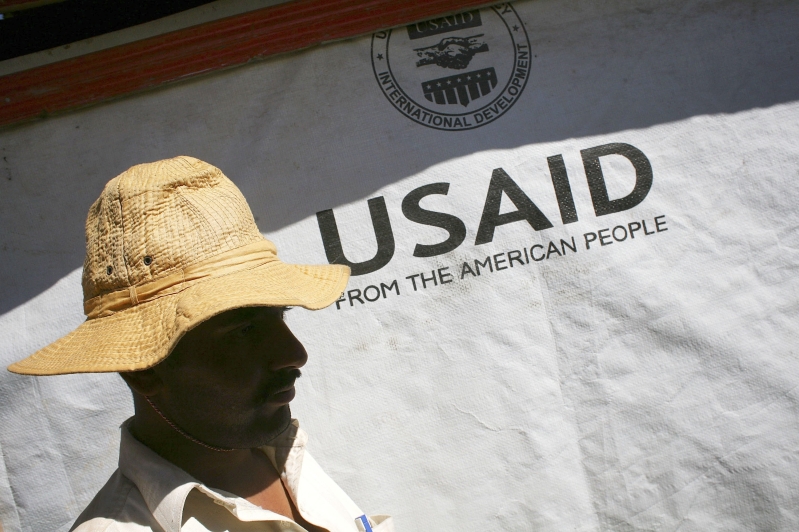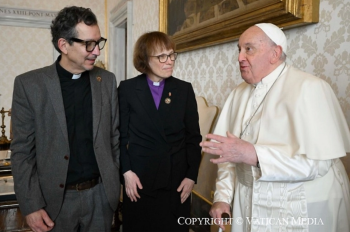
Yasir Talib was writing a project report at his office in Lahore on Jan. 27 when he received disturbing news: the research and advocacy organization where he worked would not renew his contract due to a funding freeze announced by the Trump administration.
Talib, project coordinator of the Minority Leadership Development (MLD) initiative at the Lahore-based Center for Social Justice (CSJ), which was financially supported by the National Endowment for Democracy (NED), was among 10 employees laid off "until further notice" following President Donald Trump's unexpected decision to pause all foreign aid and cut funding for organizations such as the United States Agency for International Development (USAID).
"The MLD project was crucial as we were conducting consultations and lobbying on important issues such as the legislation against forced conversions and establishing a proactive National Commission for Minority Rights," Talib told Christian Daily International.
He said the sudden suspension of the project affected him and 10 other team members working in 10 districts.
"It’s not just about my job; the project’s suspension is a setback to all the hard work we have done in the last two years," Talib said.
CSJ Executive Director Peter Jacob could not be reached for comment.
Christian Daily International has learned that NED was funding at least 22 organizations in Pakistan working in democracy, education, and minority rights advocacy, among others.
Christians True Spirit (CTS), another non-governmental organization, has also been affected by Trump's decision to block funds.
"Several CTS projects, including legal aid to vulnerable groups, healthcare, and education that were being carried out with the financial support of the American government will likely be shelved for an indefinite period due to this funding pause," said Katherine Sapna, executive director of CTS.
Speaking to Christian Daily International, Sapna said several organizations in their network that worked in partnership with USAID and NED were forced to lay off staff and shut down projects due to the decision.
"Suspension of crucial programs, especially in healthcare, will put the lives of millions at risk," she warned.
Sapna added that organizations still operating on funds from other donors, including church bodies, were conducting internal assessments on how to sustain operations until the situation with U.S. funds became clearer.
"We are in panic mode! Our church donors are also very concerned, and though they have assured us they will try to fill in the funding gap, we are not sure yet how we will navigate through this crisis," she said.
Mohammad Dittal Kalhoro, executive director of the Sindh Rural Support Organization, one of USAID's implementing partners in Sindh province, said his organization was forced to shut down all three of its U.S.-sponsored health initiatives—two of which were in full swing, while the third had barely begun.
"This decision will undoubtedly have a highly negative impact, particularly in a country like Pakistan, where numerous programs across various sectors relied on USAID funding," Kalhoro said.
He added that the suspension affects not only healthcare but also humanitarian assistance, refugee support, nutrition, education, energy, trade, economic growth, infrastructure, and climate change efforts.
"We are among dozens of organizations that have already started firing or suspending employees since the end of January," he said.
According to media reports, Trump’s cuts have suspended $845 million in funding for USAID projects in Pakistan.
Among the most significant suspended projects is the Integrated Health Systems Strengthening and Service Delivery Integrated Health System Program, an $86 million initiative aimed at improving Pakistan’s healthcare infrastructure. The Global Health Supply Chain Program, valued at $52 million, was designed to ensure the availability of essential medical supplies. In education, the Merit and Needs-Based Scholarship Program, worth $30.7 million, was set to support underprivileged students pursuing higher education.
The Inclusive Democratic Processes and Governance, a $15 million initiative, was intended to enhance democratic governance and transparency. The suspension has also affected development efforts in Pakistan’s recently merged tribal areas. The Merged Areas Governance Program for former Federally Administered Tribal Areas, valued at $40.7 million, was improving governance and administrative systems.
Additionally, the Building Peace in Pakistan program, worth $9 million, aimed at fostering religious, ethnic, and political harmony, has been put on hold. The freeze has also halted the Pakistan Private Investment Initiative program, worth $43.5 million, which was focused on generating employment opportunities.
One of the most critical projects affected is the Mangla Dam Rehabilitation Project, a $150 million initiative essential for Pakistan’s energy and water security.
The decision to suspend these aid programs is part of a broader restructuring of U.S. foreign assistance under Trump’s "America First" policy.
USAID, established in 1961 under President John F. Kennedy, has long been a cornerstone of U.S. foreign policy, administering approximately 60% of the country’s aid budget. In the 2023 fiscal year alone, USAID disbursed $43.79 billion in global assistance, supporting development efforts in over 130 countries. It has garnered controversy, however, due to a number of projects that made headlines and were criticized as wasteful spending and overt support for progressive priorities.
Trump’s administration is now seeking to consolidate USAID into the State Department, a move aimed at reducing government expenditure and redirecting funds toward domestic priorities.





